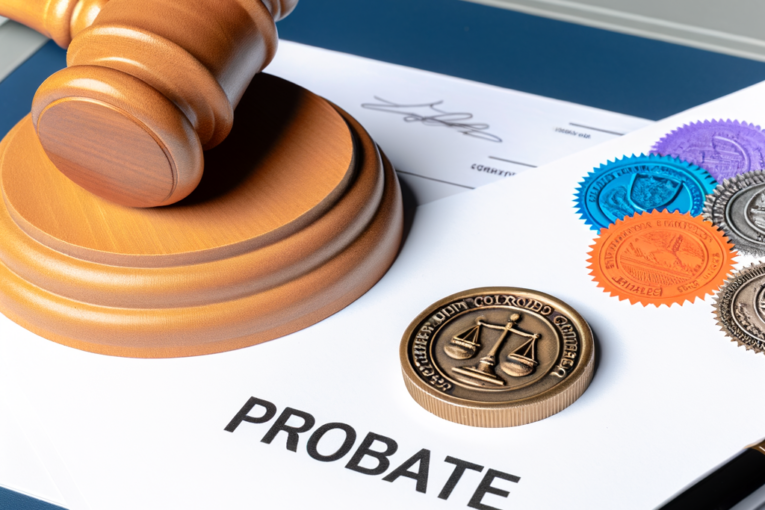Undue influence is a concerning issue that can have severe consequences if left unchecked. As caring family members, it’s crucial that we understand what undue influence is, learn to identify warning signs, and take proactive steps to protect our loved ones.
What is undue influence?
Undue influence occurs when someone uses manipulation, coercion, or deceit to control another person’s decision-making. The manipulator often leverages emotional connections and power dynamics to influence the victim into making financial, legal, or personal decisions they otherwise wouldn’t make.
This can take many forms, such as withholding affection, making threats to the person’s security, or even spreading lies to isolate the victim from other family and friends. The victim is often a vulnerable elderly person or someone with diminished physical or mental capacity.
Financial abuse is one of the most common and devastating forms of undue influence. This can include pressuring an older relative to sign over assets, change their will, or obtain powers of attorney against their wishes.
Recognizing Warning Signs
The best defense is learning how to recognize warning signs of undue influence. Subtle signs are often dismissed, allowing the abuse to escalate over time. Here are some examples:
- A new friend, caregiver, or romantic partner restricts access to the elderly person.
- Preventing communication with close family members
- Withholding mail or legal documents from family
- Making significant financial decisions without family input
- Isolating the elder from friends and relatives
- Appearing stressed or withdrawn in the presence of the manipulator
- Elders showing signs of confusion or fear when asked about financial matters
Staying vigilant for patterns over time is key to identifying undue influence before it’s too late.
Proactive Planning
The best way to combat undue influence is to be proactive with legal and financial planning.
First, have open and honest conversations with aging loved ones about their goals for health care, finances, and estate planning. Make sure they have reliable powers of attorney and an up-to-date will prepared by an estate planning lawyer.
Second, maintain regular contact with grandparents or elderly relatives, especially if they depend on others for caregiving. Watch for any personality changes or confusion.
Finally, document any suspicious activity and share concerns with a trusted family advisor or lawyer. They can help determine if legal action is warranted, such as petitioning for guardianship or conservatorship or revoking a power of attorney obtained through coercion.
Real-Life Examples
To understand the gravity of undue influence, it helps to look at real-life examples of how good intentions went awry:
- A grandson convinces his grandmother to add him to her bank account “in case of emergency.” He then slowly drains $50,000 from her account without permission.
- A new “caregiver” isolates an elderly man with dementia from family and friends. She later persuades him to sign a new will, leaving her his entire estate.
- A widower trusts a new girlfriend to handle his finances. She abuses this power to take out loans in his name, which he struggles to repay after the relationship ends.
As these examples show, undue influence can take many forms. While not all cases are malicious in intent, the consequences can still be devastating.
Protecting loved ones
As a caring family member, you want to ensure aging parents and grandparents maintain independence and dignity in their later years. Here are some best practices:
- Encourage proactive estate planning while your loved one still has full capacity. An estate planning lawyer can help ensure documents reflect their true wishes.
- Select powers of attorney who have the integrity to resist influence from others. Avoid anyone prone to control or who may benefit financially.
- Discuss wishes openly as a family. Make sure siblings, grandchildren, and other relatives understand the elder’s intentions to minimize disputes.
- Monitor bank accounts and legal documents. Watch for any changes that seem out of character or suspicious.
- Stay involved in their lives. Regular visits and phone calls can help you detect problems right away.
- Consult a lawyer at the first sign of undue influence. They can advise on legal remedies before the abuse worsens.
The Role of Family
As family members, we play a critical role in protecting our loved ones. Here are some ways to leverage your position:
- Remain close to your aging parents and grandparents. Visit and call frequently to stay apprised of their daily lives.
- Ask questions if you notice confusing or out-of-character behaviors. Don’t ignore subtle personality changes.
- Encourage proactive estate planning. Guide them to meet with an estate planning attorney while still of sound mind.
- Help them organize financial and legal records. Ensure important documents are accessible to trusted relatives.
- Select powers of attorney carefully. Choose those with integrity rather than just convenience.
- Watch for warning signs. Isolation, personality shifts, and confusion may signal issues.
- Intervene respectfully if you suspect manipulation or abuse. Seek legal counsel to protect their best interests.
Conclusion
The threat of undue influence is very real, but also very preventable when armed with awareness and early action. As a caring family, we must make it a priority to protect our aging loved ones.
Have proactive conversations about their wishes. Stay involved in their lives and watch for red flags. Document concerns and seek legal counsel at the first sign of abuse. With proper diligence, our greatest generation can live out their final years with dignity, independence, and peace of mind.





